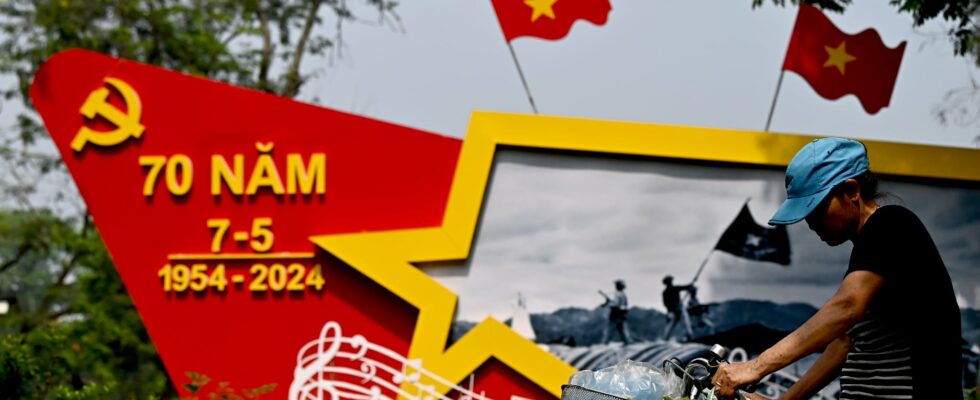Jean-Luc Mélenchon likes to recall that, in his youth, he supported the Vietnamese (the “incredible rebels”) and “applauded the US defeat” in that country. But who has heard the leader of the far left enthuse about the spectacular economic development of Vietnam since it embraced the market economy? Over three decades, this state of nearly 100 million inhabitants has enjoyed an average annual growth rate of 7%, surpassing its Asian neighbors. In 1990, with a GDP of 98 dollars per capita, Vietnam was still the poorest country in the world, ahead of Somalia and Sierra Leone. Today, less than 5% of Vietnamese live in extreme poverty (compared to 80% thirty years ago).
In How nation escape poverty (Encounter Books), recently published in English, German historian and sociologist Rainer Zitelmann has looked into the secrets of this Vietnamese miracle. He begins by recalling the extent to which the socialist planned economy and the collectivization of agriculture led to disasters. In 1980, Vietnam produced only 14 million tons of rice, while the country needed 16 million to meet the basic needs of its population. The communist regime had to introduce rationing and depended on the World Food Program (WFP) as well as aid from the Soviet Union and “brother countries” in Eastern Europe. In 1986, inflation reached 582%. Vietnam’s GDP per capita was half that of Kenya.
But that year, the 6th Congress of the Communist Party marked the victory of the reformists and the pragmatists. Recognizing its mistakes, the regime then launched drastic reforms, an economic liberalization that would go down in history as “doi moi”, or “renewal”. The market economy was authorized, then encouraged. Vietnam also opened up to free trade and took full advantage of globalization. Foreign direct investment jumped from 7.6 to 16.1 billion dollars between 2009 and 2019. Today, in order to be less dependent on China, many companies prefer to relocate to Vietnam. A development that greatly benefits the population: in 1998, only 27% of Vietnamese belonged to the middle class, compared to 65% in 2018.
Looking to the future
Rainer Zitelmann highlights a paradox: while the country is still officially Marxist, the Vietnamese largely associate the term “capitalism” with positive notions, such as “progress” (81%), “innovation” (80%), “a wide range of products” (77%) or “prosperity” (74%). In terms of values, the population, especially the young, is much closer to Japan and the United States than to other socialist countries.
Few nations have been so affected by bloody conflicts in the 20th century. However, unlike the Algerian regime for example, Vietnam was able to quickly overcome colonial resentment and past trauma, even though it suffered the long Indochina War from 1946 to 1954, followed by the Vietnam War from 1955 to 1975. According to the Asian Barometer, 85% of Vietnamese people today have a positive image of Americans, compared to only 25% of Chinese. Faced with its cumbersome Chinese neighbor, the regime did not hesitate to move closer to the United States.
An authoritarian regime
This economic liberalization has not been accompanied by political liberalization. Vietnam remains a one-party authoritarian regime. Nguyen Phu Trong, general secretary of the Vietnamese Communist Party who ruled the country with an iron fist, has just died at the age of 80. According to the Corruption Perceptions Index of the NGO Transparency International, Vietnam ranked only 87th out of 180 countries in 2021, although it has improved its score.
At the beginning of the year, The Economist welcomed the optimistic outlook for the country, but warned of the need for political reform: “Vietnam has gone from deep poverty to modest prosperity in a single generation. But it must continue to reform. The geopolitical winds may change. Its rivals may become more competitive. The country is aging rapidly: its working-age population could decline after 2038. And its citizens may tire of the ruling party if living standards do not continue to rise rapidly.” Vietnam still has a long way to go to catch up with Japan, South Korea or Taiwan.
.
